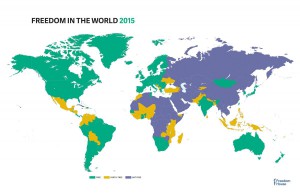


The Roman philosopher Cicero once said to his son, “You are the only man of all men whom I would wish to surpass me in all things.” The form this sentiment takes collectively is a good summation of the universal hope for humankind. We want our children in particular, but also the next generation and the world more generally, to be better off than we are.
We want them to surpass us “in all things,” not simply in terms of material wealth, but also with respect to their development as whole human persons, body and soul.
Earlier this week I had the privilege of participating in a panel discussion hosted by Common Sense Concept at AEI on the current debt crisis facing America, focusing particularly on applying the concept of “intergenerational justice” to the problem. You can view the entire event at the AEI page. A highlight of ments appears below:
One of the things we talked about during the discussion was the idea of “opportunity” and how it relates to intergenerational justice. Cicero’s sentiment assumes this idea: his son needs to have the opportunity to surpass him, to be better than him “in all things.”
I think of how this applies to the hopes and dreams of so many Americans, not particularly for themselves, but for their children. Consider the people you know or stories you’ve heard about parents who work extra shifts and second, sometimes third, jobs to put away money so that their child can have the opportunity they have never had: to go to college, to get a well-paying, rewarding, and fulfilling job, and to see flourishing on an intergenerational scale.
It reminds me of the film “The Pursuit of Happyness” that came out a few years ago. This is a story based on the real-life experiences of Chris Gardner. One of the takeaways from the film version is that so much of what drives Gardner to work harder, to never give up, to continually seek a better life, is that he is doing all this for his son. Lending the portrayal special poignancy, in the film Gardner and his son are played by Will Smith and his own son, Jaden.
A great deal of what we are talking about in this ongoing conversation about the public debt crisis and intergenerational justice centers on this idea of opportunity. Ryan Streeter mentioned it explicitly in our discussion, and Ron Sider’s explication of what the biblical picture of “economic justice” is like could be summed up as focusing on guaranteeing opportunity across generations. In his essay, “General Biblical Principles and the Relevance of Concrete Mosaic Law for the Social Question Today,” (appearing in the latest issue of the Journal of Markets & Morality) the theologian Herman Bavinck describes the Old Testament polity as one in which “the basic necessities for a life of human dignity were made possible for most Israelites.”
The fiscal reality today, however, is that we are rapidly facing a situation in which ing generations will be constrained from having the opportunity to surpass us because of the profligacy of federal spending, the mitments to transfer wealth from younger and poorer workers to older and wealthier Americans, and the simply unsustainable levels of spending pursued for decades by politicians.
This is why in the key economic factor to consider in the debates about the ethics of intergenerational justice is that of opportunity cost. As David Henderson writes, the concept’s “virtue is to remind us that the cost of using a resource arises from the value of what it could be used for instead.”
The Social Security system is perhaps the most obvious example in this regard. It is the single largest piece of the federal budget ($695 billion in FY 2010), taking large sections of e out of the checks of working Americans every pay period, that could otherwise be put to a variety of other uses. Depending on the situation, some of these uses might be more immediate and temporary (like food and rent) and others might have longer-term implications (such as investment and savings).
When we ignore opportunity cost and its intergenerational implications, we are constricting the range of options available to current and future generations. We are, in fact, infringing on their rights to liberty and “the pursuit of happiness.”









